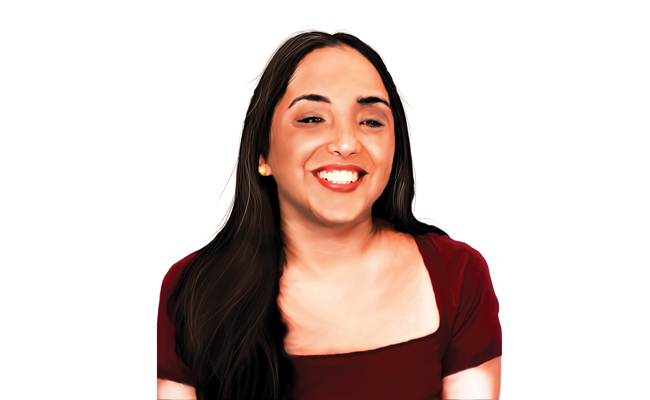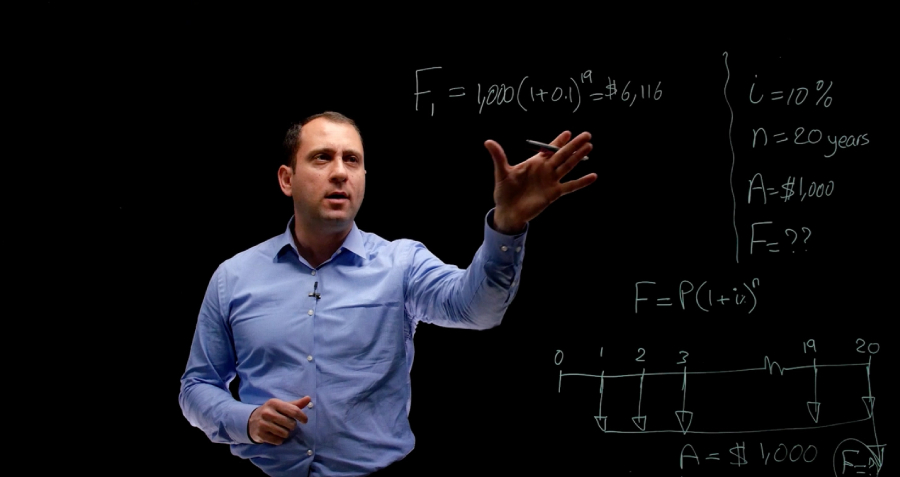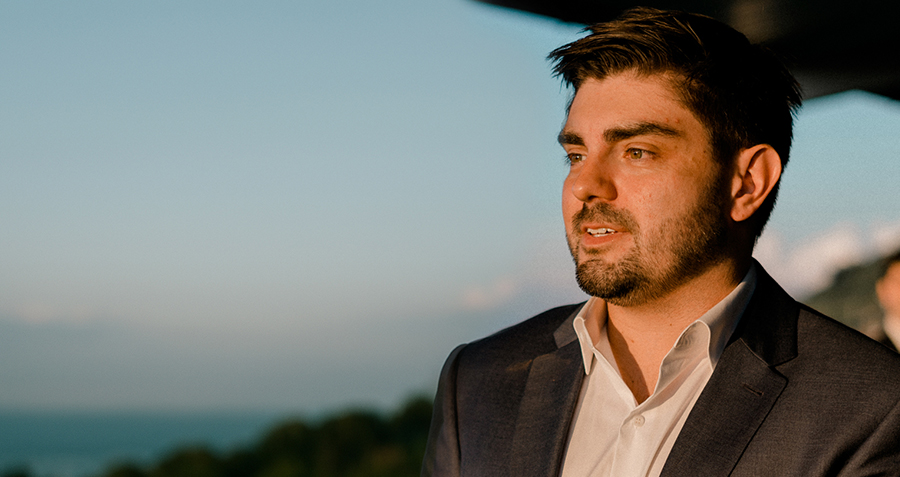Sheena Iyengar, author of The Art of Choosing, on the limitations of choice—and how to choose wisely
We all think that more choice is good. But a trip down the supermarket aisle reveals otherwise. It isnʼt as simple as picking things off the shelf and dropping them into your shopping cart. When you see an item like ʻtoothpasteʼ on your shopping list, you have to not only choose from an endless list of brands like Colgate, Close-Up and Crest, but also navigate through a dozen or so variants within each brand: gel, whitening, anti-cavity, toothpaste with additives like baking soda, etc. You do it first for toothpaste, then for soap, shampoo, ketchup, till you reach the end of your shopping list—and quite literally, the end of your tether.
Navigating through a maze of brands and variants has become an exhausting mental exercise. Intrigued by instances such as this one, Sheena Iyengar, the S.T. Lee Professor of Business at the Columbia Business School, started to explore the idea of choice, and whether choice is always good. Her research led to a bestselling book called The Art of Choosing which received critical acclaim from the likes of Malcolm Gladwell and Dan Gilbert. In this interview, Iyengar, who was voted as one of the top 50 most influential business thinkers of 2011 by the Thinkers50, walks us through how we choose, why choice has its limitations, how different cultures see choice and the implications of her research.
Q. People often view choice as something that empowers them. To what extent is that true?
A. Obviously putting a number on it would be very complicated, but here is how I would answer that question. Is your life affected by fate? Sure. If I ask you how you became the person that you are or [got to] the position that you are in, you will absolutely point to the circumstances of your birth or your fate that helped you get there. Are you affected by luck or random events? Absolutely, you can also answer that question. If I also ask you: “Did you make some choices to get to where you are today?” The answer, again, would be yes. So you can answer all three questions, and your answers to all three questions will be different.
But I think that there is something different and more powerful about choice compared to fate and chance, because choice is the only one of these three forces that puts control in your hands. Ultimately this is the only tool that any of us have that enables us to go from where we are today to where we want to be tomorrow. Itʼs the only thing youʼve got. Now itʼs really up to you to figure out how to get the most from this tool.
Q. You say, “We get a lot more out of choice in our lives if we understand that we donʼt always know how to choose, and that choice has its limitations”. Can you explain what you mean by the limitations of choice?
A. There are two things about that. As Asians, we are much more likely to say, “Oh, I have no choice. Itʼs a matter of fate and itʼs not under my control.” While the Americans are much more likely to say, “I can do anything. If I want it, I can have it.” Clearly the truth is in the middle. The key to the power of choice is recognizing what the aspects on which you have choice are and what the aspects on which you donʼt have are.
Let me make this more concrete. One of the things that I have people do is that I have them thinking about one thing that they are struggling about right now in their life. And then I ask them to generate choice. What are some things you could do about it? If you give that task to Americans, they feel very positive and happy because theyʼve come up with a whole bunch of ideas. If you give this task to Asians, they feel depressed because they feel none of these are possible. What I then get them to do, because both ethnic [groups] have not done the exercise correctly, is that you have them generate the choices, and then each day you have them generate, again, more choices. Because what is going to happen over time is that they will start to generate the choices that are actually doable. We canʼt do that right away. We are not capable. It takes us time to think it through. But over time, if you keep doing the exercise of generating options in a way that takes attention to the constraint, you wonʼt come up with your own ideals, which is something you have to recognize, you never get fully what you want, but you can absolutely improve upon your status quo. Little by little, with each improvement on your status quo, you get closer to your ideal. I think that is the power of choice.
Q. Itʼs interesting you mention the Asian and American attitudes towards choice. What roles do social norms play in how we look at choice?
A. I think it means a lot. Itʼs how you see the world. Itʼs whether you see yourself as an empowered person or merely a cog in the wheel. Social norms play a very big role. [For example], as an Asian, we are very good at coming into a room full of people and trying to figure out what the norms are here. My job is to follow the norms and fit in. As an American, you walk into the room, you look around and you think, “Hmm, what would I like here? What would be cool for me?” Itʼs a different attitude.
Q. What role does our desire for self-identity play here?
A. We have different notions of how to develop a self-identity for sure, but I think in general, no matter where you go in the world, everybody wants to be well regarded. They want to be valued persons. Itʼs just how do you achieve being valued persons and give people different messages about that, right? In Asian cultures, people are told that if you want to be a valued person, you need to follow the norms really well. You make that dish perfectly as a woman. You dress the way that everybody would say is the right way. You are the perfect wife, or you are the beautiful boss. While in American culture, you are supposed to figure out a way to stand out, but in a way thatʼs cool rather than bizarre. We are all trying to be valued people.
Q. From what you say, it seems like we all like to have choice, but we donʼt necessarily know how it works. The ability to choose gives us a sense of control and probably makes us happy or satisfied. Would you agree with that?
A. I think that one of the biggest [issues] no matter where you go is that people donʼt know how to choose. We would all be better off if we spend more time teaching our children how to choose. No matter where you go in the world, parents focus a lot of energy on telling children what to choose. We all know that 20 years from now, the world is going to look very different. There is actually no point in teaching your children what to choose because those choices are probably not going to be relevant. Let us just teach them how to choose. How to choose means of thinking through consequences and trade-offs. People have a very hard time with that. They are not wired to think that way.
Q. One very profound thing you once said is that “choice is never a solitary activity. Though we think of choice as a means to individuate ourselves, we never choose alone”. Why?
A. Because choice is a ʻbody languageʼ. Every time you make a choice, you are communicating something to other people, whether consciously or sub-consciously. One time you are trying to communicate: “Iʼm okay”, and other times you would try to communicate: “Hey, Iʼm a little different.” All the time, we are trying to communicate something.
For example, what you wear. Even when you make choices that are ʻconsumedʼ in secrecy, such as what you eat or how much you sleep, these are a bunch of choices that you could hide. Even then, those choices are not made independently from other people. The rest of the world has told you how to interpret it and what to think about it.
Q. Would you say that most of us exercise our choices within a given band or a range? Not so much similar to the majority so that we still stand out and maintain our individualism, but not too extreme?
A. Yes, I would agree with that and I also would say that most of what we do is habitual. We donʼt actually make a lot of choices. I think for the most part, the only time when we really choose is when we are trying to bestow something, right? We are not very thoughtful about most things we do in life. Probably itʼs for good reasons because we would go crazy if we actually think about every single thing we do in every single moment.
The key always is to understand what is the most important to you. Because if you understand what is the most important to you, then you are more likely to stop when you get to a decision that is related to that thing that is important to you. At that point, you would exercise the power and think, “Wait a minute, what do I really think here?”
Thatʼs what I really meant when I say “veto power”. If you can at that time say, “No, I will not go with the norm. Yes, I know my parents would like me, the society would like me to pursue this career, but you know what, for these sets of reasons I donʼt want to do this.” That is the only moment of choice we really exercise [choice]. For the most part, we just follow the norm. Thatʼs actually fairly functional. We donʼt want to make every single choice.
Q. Iʼm curious about how our brain reacts to and processes our choice. If Iʼm sitting in a restaurant and I have the menu in front of me, if there are a lot of things on it, it obviously takes me a long time to decide what I want. Why does too much choice overwhelm us? What happens in our brain when we are confronted with too much choice?
A. First of all, itʼs hard to compare and contrast. What do you do when you are confronted with a bunch of choices? You compare and contrast upon their different attributes. Actually you are trying to figure out what this fish would taste like. Is it heavy or light? Chicken versus beef? Or vegetarian? You are trying to figure out how would each one feel to me. You are going to evaluate a bunch of different things.
It gets complicated if you get more choices, cognitively. Now you need to track a little. How are you going to keep track of your preference ordering? Thatʼs one thing that happens.
The second thing is that your expectations change when you have more choices. The more choices you have, you feel like you ought to get a better meal. If you just have two choices, the chicken or the vegetable, your expectations are appropriately aligned. If you have more choices, your expectation would be: “I want a delicious
meal.” And then the fear of regret goes up. Itʼs a harder task. Itʼs a harder choosing exercise. On top of that, your expectation of what you are going to get out of it goes up, so your fear of regret goes up.
Q. What does your research suggest regarding limiting choice?
A. People are generally happier when they choose something of ʻsmaller limitsʼ, because they are more confident about what they have chosen. We donʼt like to limit ourselves though—we are very nervous about that. But itʼs okay if someone else limits our choice. We donʼt like doing it for ourselves.
Q. What is your advice to companies and marketers? Is there an optimal number of choices that they should offer?
A. I think companies should do it themselves. In the short run they are better off by creating these minor variations of choice. In the long run they are better off shrinking their choices and offering the things that are truly different and offer a value.
Apple doesnʼt overwhelm you with choices. If you look at their phone options, their laptop options, their iPod options, their iPad, they are all of limited choice. Even when they offer you so-called color choices, there are so few.
Q. What is your advice to individuals? When we are confronted with increasing choices every day, how can we process them better?
A. I think most of the choices donʼt matter. Most of the time, just go with the norm and focus your energy on the choices that matter to you. And I feel like to make a good choice actually takes a lot of effort. You do need to leave the energy for that.




















